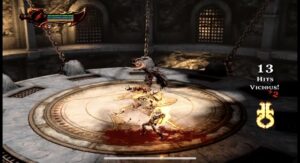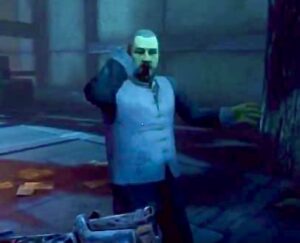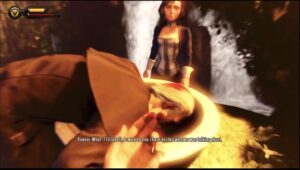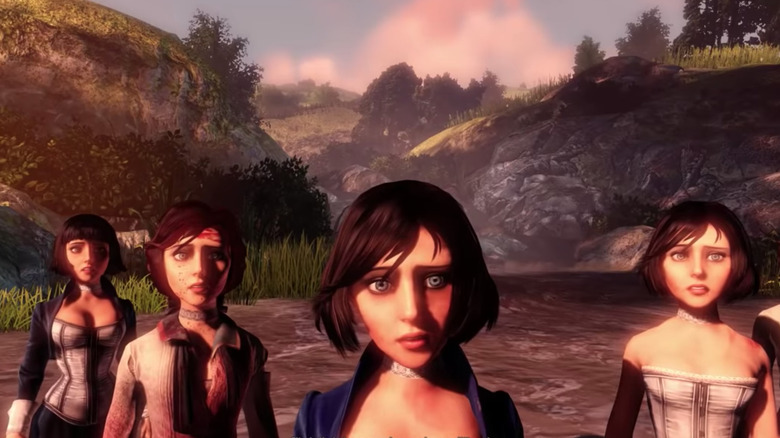
Assuming that most of my readers are either teenagers or young adults, and if you are not, think back to when you were younger. Was there ever a point in your life where whenever there was a moment where you would fall from grace, or in other words, come up short in whatever applies to you, your parents or someone opposed to technology would blame it all on your gaming/phone consumption? If so, there were probably moments where you were certain that the opposite party was simply reaching for blame, trying to force an entirely moot point that your technological consumption was the sole reason for your shortcomings. Personally, growing up, any minor academic hiccup I ran into was attributed to gaming consumption itself and how it held no actual value and was nothing but a waste of time. Yes, that is true when consumption reaches extreme levels. However, I have always felt gaming for hours was the same as watching movie after movie (Something my parents do in their free time), given that the same number of hours was spent consuming both forms of media.
Breaking away from that bottled-up teenage rant, I argued that video games should be seen in the same light as other forms of media we view as literary, like novels, poetry, and movies. In the past, my only support for this argument would’ve been games containing a cinematic-type storyline alone. This semester, I learned to look at games differently, which helps find supporting examples for the argument that games should be considered in literary conversation. Before taking this course, if someone were to ask me, “what is a must-have for a game to be literary cannon?” I would have only attributed it to any game containing a cinematic story with so much detail to its in-game cutscenes to the point that it can convincingly be watched in movie form. However, after being introduced to games like What Remains of Edith Finch and the Bioshock series, I learned many more aspects of gaming that could solidify a game as literary cannon outside of a compelling cinematic story. Both games I mentioned here are strong examples of games with the ability to tell their stories through their in-game mechanics, which also supplements their games’ already existing in-game stories.

Looking back, my younger self would one-hundred percent place the entire God of War series as a game that fits the criteria of what places a game in the conversation of video games as literature. This would have been based on the sheer fact that when a player is playing the game, no matter their reason, they unintentionally learn about Greek Mythology through exposure, which can be comparable to watching a movie that can also be educational in a sense.
The earlier installations of God of War can be another excellent example of mechanics telling a story within the game. Although it is not as in-depth as games like Bioshock, writing this blog caused everything to click in the reminiscence of my past playthroughs. To keep it short and sweet, I never paid attention to the player HUD and how it can connect to the character, story, and the nature of the character’s actions, which in this case, was Kratos in the God of War series. In the game, we know Kratos as the God of War, and as depicted from his cutscenes in the past, he feeds off bloodshed, making him even more potent as he goes deeper into his blinding rage. In gameplay, when you defeat enemies, Kratos’s attacks would typically dispose of them in a blood-splattering manner. Killing enemies causes the player’s berserk meter to fill up with each subsequent kill the player gets. The meter exponentially moves when enemies are defeated in succession, resulting in a combo multiplier which can be lucrative to the player as “Berserker Mode” makes defeating enemies much easier, thus, continuing the player’s onslaught. As far as gameplay, this connection can lead a player to blindly button mashing while also enjoying the bloodshed and possibly losing track of what they are doing. An unfortunate death that was the catalyst to the entire game’s story was attributed to this same pattern. To keep it short, in the past, our main character accidentally killed someone of importance to him after going into a mode of blinding blood lust at the wrong place. There are probably many more aspects to the God of War series that I can talk about which can be considered literary canon, but that could potentially shave off 20 years of your life. Lucky for you, though, I’ll spare you in my final blog post, but if that is what you desire, say no more. I will be happy to assist you.

If I ever got another PlayStation, I would buy the entire God of War series to go back and play some of them for the first time or better analyze the ones I have already played, given what I have learned this semester. In other news, I do plan to continue the conversation to look at video games the same way we look at other forms of media that hold literary value. I would love to play single-player games again; however, I have no idea what I will play next. I am still very fond of online competitive play, and typically those games do not have much of a story to look into. Although once I reach my peak in all three of my main games, I will certainly get back to playing single-player games since my love for them has been reignited by taking Video Games as Literature this semester.











 Of all the games that we have played so far, Bioshock Infinite has been my favorite for many reasons. The first thing that caught my attention and continued to amaze me throughout my gameplay, was the very bright and detailed setting of Columbia. The setting and environment are some of the biggest parts of the gaming experience in my opinion. While I did enjoy playing the original Bioshock, the dark and wet world of Rapture was not as enjoyable to play in as Columbia. (However, when Elizabeth opened a tear that ended up being Rapture, you bet your buns that I enjoyed every second of that.)
Of all the games that we have played so far, Bioshock Infinite has been my favorite for many reasons. The first thing that caught my attention and continued to amaze me throughout my gameplay, was the very bright and detailed setting of Columbia. The setting and environment are some of the biggest parts of the gaming experience in my opinion. While I did enjoy playing the original Bioshock, the dark and wet world of Rapture was not as enjoyable to play in as Columbia. (However, when Elizabeth opened a tear that ended up being Rapture, you bet your buns that I enjoyed every second of that.)


